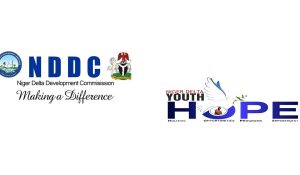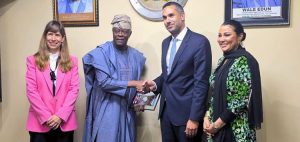
Kusin Ekanem, a rural education researcher and advocate, is contributing to sustainability by pioneering a transformative reusable textbook project.
Aimed at bridging educational gaps between urban and rural communities in Nigeria and Africa, this innovative initiative calls on governments, stakeholders, and individuals to join forces in making education more accessible to underprivileged children in rural areas.
From a sustainability perspective, CSR Reporters could see through this laudable innovation as this project holds significant promise for advancing Corporate Social Responsibility (CSR), promoting sustainable living, and contributing to global climate change solutions.
Ekanem’s reusable textbook initiative is a prime example of how CSR can be leveraged to create profound social impact while contributing to sustainability, concurrently. By redirecting unused or gently used textbooks from urban centers to rural communities, companies can directly contribute to improving the quality of education. This effort not only supports underprivileged children but also fosters a culture of learning and academic excellence, which is essential for the socio-economic development of Nigeria and Africa.
Ekanem said: “Textbooks, a fundamental building block of education, are a luxury for many rural children.
“Recycling textbooks from urban areas can bridge the gap between abstract teaching and practical application, improving academic performance,” she said.
The fast rising sustainability champion drew from her personal experience of sharing textbooks among siblings during her primary school days in the 90s, which reduced waste and promoted sustainability.
Honestly, the practice of reusing textbooks aligns perfectly with sustainable living principles. It addresses the issue of waste by giving a second life to educational materials that would otherwise end up in landfills. This reduction in waste contributes to a cleaner environment and promotes a circular economy, where resources are reused and repurposed rather than discarded.
Speaking about the global Contribution to Climate Change Solutions, the textbook reusable project, the initiative reduces the demand for new paper production, which is resource-intensive and environmentally damaging. Paper manufacturing involves significant deforestation, water usage, and energy consumption. Reusing existing materials mitigates these environmental impacts, conserving natural resources and reducing carbon emissions associated with paper production.
Access to textbooks and educational materials in rural areas can also lead to increased awareness and understanding of environmental issues among young learners. Educating children about sustainability and climate change equips them with the knowledge to make environmentally conscious decisions in the future. This ripple effect can lead to more sustainable communities and a greater collective effort to combat climate change.
Fostering Community and Corporate Collaboration
CSR Reporters joins Ekanem’s call to action for governments, individuals, and corporate organizations to support textbook reuse as the sustainability project encourages a collaborative approach to tackling educational inequities. Corporates can play a pivotal role by funding and facilitating the collection, refurbishment, and distribution of textbooks. This not only enhances their corporate image but also builds strong community relations and demonstrates a commitment to social responsibility.
For its long-term benefits, supporting educational initiatives through CSR not only addresses immediate educational needs but also contributes to long-term socio-economic development. An educated population is better equipped to drive innovation, economic growth, and sustainable development. By investing in education, corporates help cultivate a skilled and knowledgeable workforce, which is beneficial for the nation’s growth and their own business interests.
Kusin Ekanem’s textbook ‘recycling’ project is a shining example of how sustainability and CSR can intersect to create meaningful change. By addressing educational disparities, reducing waste, and promoting environmental stewardship, this initiative offers a holistic approach to sustainable development. It is a call to action for all sectors of society to contribute to a more equitable and sustainable future for Nigeria and Africa.
As CSR Reporters, we commend this initiative and urge all stakeholders to support and amplify its impact. By working together, we can bridge educational gaps, reduce environmental footprints, and empower future generations to tackle the pressing challenges of our time.









